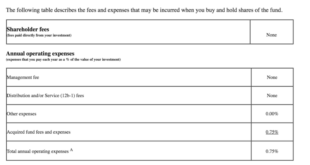Mortgage Brokers Explained: Everything You Need to Know. Mortgage brokers play a pivotal role in the home-buying process, helping individuals and families secure the best mortgage deals available. In this comprehensive guide, we’ll explore what mortgage brokers do, how they differ from lenders, and why their expertise can be invaluable in your journey to homeownership.
What is a Mortgage Broker?
A mortgage broker is a licensed professional who acts as a middleman between borrowers and lenders. They assess your financial situation, guide you through the mortgage process, and help you find a loan that suits your needs.
Unlike loan officers who work for specific banks or lenders, mortgage brokers have access to multiple lenders, giving borrowers a broader range of options.
The Role of Mortgage Brokers in Securing Home Loans
Mortgage brokers perform several key functions, including:
- Assessing Borrower Needs: They evaluate your financial health, including credit score, income, and debt-to-income ratio.
- Exploring Loan Options: Brokers compare various loan products from multiple lenders to find the best terms for you.
- Simplifying Paperwork: They help you complete the necessary documentation and ensure accuracy to avoid delays.
- Negotiating Rates: Skilled brokers can secure competitive interest rates by leveraging their lender relationships.
- Providing Expert Guidance: Brokers clarify complex mortgage terms and help you make informed decisions.
Advantages of Working with a Mortgage Broker
- Access to More Lenders: Brokers can connect you with loan products you might not find on your own.
- Personalized Recommendations: Tailored advice ensures the loan fits your unique financial situation.
- Time-Saving: Mortgage brokers streamline the application process, saving you effort.
- Expertise in Complex Cases: For self-employed individuals or those with irregular incomes, brokers can identify suitable lenders.
Mortgage Brokers vs. Direct Lenders
| Feature | Mortgage Brokers | Direct Lenders |
|---|---|---|
| Access to Options | Multiple lenders | Single lender |
| Interest Rates | Can negotiate better rates | Fixed by lender |
| Application Process | Streamlined and guided | Self-managed |
| Fees | May charge a broker fee | Often fewer upfront fees |
How to Choose the Right Mortgage Broker
- Check Credentials: Verify licensing and industry certifications.
- Read Reviews: Look for client testimonials and ratings.
- Ask About Fees: Understand their fee structure to avoid hidden costs.
- Inquire About Lenders: Ask which lenders they work with to gauge their network.
- Communication Skills: Choose someone who explains complex terms clearly.
10 Tips for Working with Mortgage Brokers
- Prepare your financial documents in advance.
- Research the broker’s background and reputation.
- Ask about their experience with similar borrowers.
- Compare broker fees before making a decision.
- Understand the loan options presented.
- Confirm if the broker is independent or tied to specific lenders.
- Stay informed about current mortgage rates.
- Review all paperwork before signing.
- Don’t hesitate to negotiate broker fees.
- Build trust by maintaining open communication.
10 FAQs About Mortgage Brokers
- What does a mortgage broker do?
A mortgage broker connects borrowers with lenders and helps secure favorable loan terms. - How are mortgage brokers paid?
They are typically compensated through a commission from lenders or fees from borrowers. - Do I need a mortgage broker to buy a home?
While not mandatory, they can simplify the process and secure better loan options. - Are mortgage brokers regulated?
Yes, they must be licensed and adhere to state and federal regulations. - Can brokers guarantee loan approval?
No, but they can guide you to lenders that are more likely to approve your application. - What’s the difference between a broker and a loan officer?
Loan officers work for specific lenders, while brokers have access to multiple lenders. - Do brokers charge upfront fees?
Some do, but many only charge after the loan is finalized. - Are mortgage brokers worth the cost?
They can save you time and money, especially in complex cases. - Can I use a mortgage broker for refinancing?
Yes, brokers can help find competitive rates for refinancing. - How do I know if a broker is trustworthy?
Check their license, read reviews, and ask for referrals.
Conclusion
Mortgage brokers are invaluable allies in the home-buying process. Their ability to provide personalized loan options, negotiate favorable rates, and simplify complex procedures can save borrowers time, money, and stress.
Whether you’re a first-time homebuyer or looking to refinance, working with a mortgage broker ensures you have an experienced professional advocating for your best interests. With the tips and insights provided in this guide, you’re well-equipped to find the right broker and secure a mortgage that aligns with your financial goals.
 mortgage.kbk.news
mortgage.kbk.news
